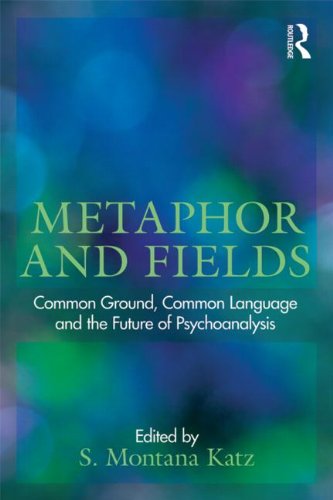

Most ebook files are in PDF format, so you can easily read them using various software such as Foxit Reader or directly on the Google Chrome browser.
Some ebook files are released by publishers in other formats such as .awz, .mobi, .epub, .fb2, etc. You may need to install specific software to read these formats on mobile/PC, such as Calibre.
Please read the tutorial at this link: https://ebookbell.com/faq
We offer FREE conversion to the popular formats you request; however, this may take some time. Therefore, right after payment, please email us, and we will try to provide the service as quickly as possible.
For some exceptional file formats or broken links (if any), please refrain from opening any disputes. Instead, email us first, and we will try to assist within a maximum of 6 hours.
EbookBell Team

4.8
14 reviewsMetaphor and Fields is an explanation and demonstration of the value of metaphoric processes and fields in psychoanalysis. In this book, Montana Katz articulates a future direction for psychoanalysis which is progressively explored, taking into account features essential to psychoanalysts of all persuasions, clinically and theoretically. In this way, psychoanalysis is brought into the postmodern future by fashioning an umbrella for the discipline. With this umbrella, the barriers to mutual understanding may be dismantled and a path permanently forged to the possibility of meaningful international, intercultural, interdisciplinary and poly-perspectival psychoanalytic exchange.
Metaphor and Fields organically merges work on metaphoric processes with work on fields. The use of a framework with metaphoric processes and fields combined exhibits the uniqueness of psychoanalysis and shows how it explores and explains human experience. The relational fields of the North American school of relational theory, intersubjective matrices, self object matrices, and the ground breaking work of Madeleine and Willy Baranger are all examples of field concepts that have been successfully employed in theoretical frameworks and clinical technique. They show how other schools of thought can be understood as using an implicit field concept.
The chapters in this book approach the subject from diverse vantage points. Taken together, they form an intricate web of psychoanalytic thought that moves the scope of psychoanalysis beyond dispute towards the open, inclusive discussion of core concepts and technique. Metaphor and Fields will be of interest to psychoanalysts, psychiatrists, mental health clinicians, psychologists, social workers, and a wide academic audience drawn from the fields of philosophy, linguistics, comparative literature, anthropology and sociology.